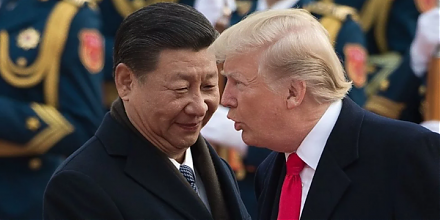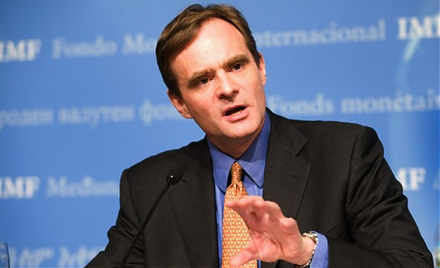

2018-01-13 08:39:00 Sat ET
treasury deficit debt employment inflation interest rate macrofinance fiscal stimulus economic growth fiscal budget public finance treasury bond treasury yield sovereign debt sovereign wealth fund tax cuts government expenditures
The Economist digs deep into the political economy of U.S. government shutdown over 3 days in January 2018. In more than 4 years since 2014, U.S. government shutdown looks likely to end within a specific time frame. Government shutdowns cost a great deal, dampen stock market investor sentiments and expectations, and embarrass congressional members on the Senate and House of Representatives. Democrats now exacerbate procedural uncertainty and hence put pressure on the Republican Senate majority leader over DACA and Obamacare legislative issues. Both DACA and Obamacare are controversial milestones, and Democrats require reasonable solutions to carefully crafting better health care and immigration bills.
President Trump urges Congress to pass a *bill of love* for DACA recipients to stay with legal residency (but not citizenship) in exchange for better border security finance and stronger enforcement of immigration laws. Also, both Republicans and Democrats seek to present their alternative cases for health care reforms in lieu of Obamacare or the Affordable Care Act.
These legislative issues matter because an increase in U.S. government debt and deficit may trigger greater seigniorage in light of robust money supply growth and Treasury bond issuance. The resultant seigniorage discrepancy can translate into inflation that manifests in higher general prices for the typical American consumer. In accordance with its dual mandate of maximum employment and price stability, the Federal Reserve would need to accelerate the current neutral interest rate hike to contain inflation near full employment. These ripple effects may dampen stock and bond prices, investor sentiments, and macroeconomic expectations.
If any of our AYA Analytica financial health memos (FHM), blog posts, ebooks, newsletters, and notifications etc, or any other form of online content curation, involves potential copyright concerns, please feel free to contact us at service@ayafintech.network so that we can remove relevant content in response to any such request within a reasonable time frame.
2019-07-13 07:17:00 Saturday ET

Japanese prime minister Shinzo Abe outlines the main economic priorities for the G20 summit in Osaka, Japan. First, Asian countries need to forge the key Re
2017-02-19 07:41:00 Sunday ET

In his recent book on personal finance, Tony Robbins recommends that each investor should rebalance his or her investment portfolio *only once a year* to in
2019-08-18 11:33:00 Sunday ET

House Judiciary Committee summons senior executive reps of the tech titans to assess online platforms and their market power. These companies are Facebook,
2018-06-09 16:40:00 Saturday ET

The Trump administration introduces new tariffs on $50 billion Chinese goods amid the persistent bilateral trade dispute. The tariffs effectively boost cost
2023-05-31 03:15:40 Wednesday ET

The U.S. further derisks and decouples from China. Why does the U.S. seek to further economically decouple from China? In recent times, th
2019-11-23 08:33:00 Saturday ET

MIT financial economist Simon Johnson rethinks capitalism with better key market incentives. Johnson refers to the recent Business Roundtable CEO statement